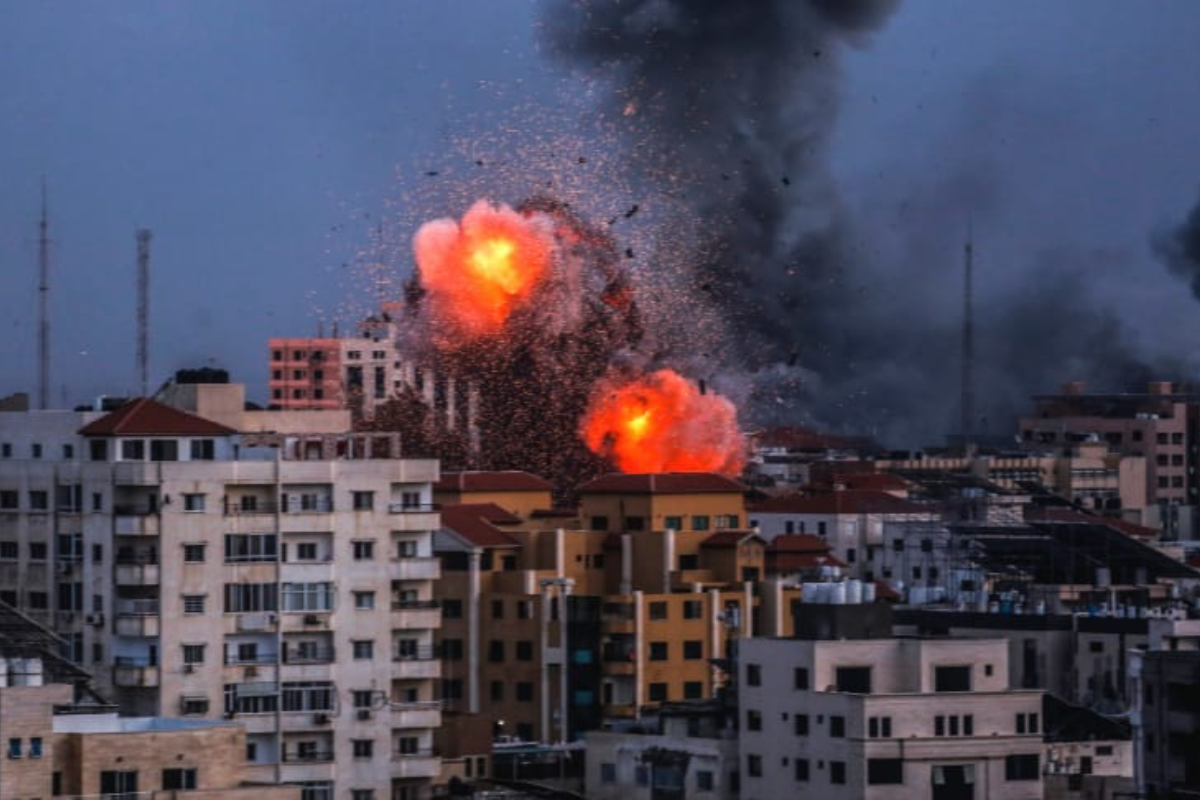The ongoing war between Israel and Hamas has dominated headlines worldwide in the past five days. As the world watches, it is disheartening to see some elements in the West openly supporting Hamas, despite its unequivocal status as a terrorist organisation. It is crucial to examine why certain individuals and institutions are endorsing it, and what this means for the pursuit of peace and justice in the region.
The Israel-Hamas war has resulted in a devastating loss of life, with over a thousand Israelis losing their lives and more than a hundred being kidnapped. Moreover, Gaza-based terrorists have fired over 4,000 rockets indiscriminately into Israel, causing widespread panic and destruction. Amidst the chaos, horrifying incidents of violence, such as rape of women and killing of kids as young as four months old, have sent shockwaves throughout the world and outraged most people.
What is deeply troubling, however, is the vocal support that Hamas receives from certain politicians in the West. Figures like Ilhan Omar and Rashida Tilab, Members of the US Congress, have raised eyebrows by issuing statements that don’t just stop at expressing solidarity with Hamas, which is often veiled as criticism of Israel’s actions. However, they fail to acknowledge the complex reality on the ground. Hamas, a group notorious for its use of human shields and deliberate targeting of civilians, cannot be equated with the Israeli government, which, like any other nation, has the right to defend its citizens.
READ MORE: Israel vs. Hamas: A closer look at their arsenal
Similarly, esteemed academic institutions like Harvard and Columbia have faced criticism for holding Israel’s retaliatory action in the same light as terrorist attack on Israel, and a statement that is sympathetic to Hamas. It raises concerns about the neutrality and objectivity of academic discourse when organizations appear to endorse a group with a well-documented history of terrorism. Universities should be places of open dialogue and rigorous analysis, but support for organisations like Hamas risks undermining the credibility of scholarly discourse on this complex issue.
It is crucial to recognize the context of the Israel-Hamas conflict, which has deep historical roots and complex geopolitical dimensions. The suffering experienced by civilians on both sides is a tragedy that must be addressed, but it cannot be used as a justification for supporting a terrorist outfit. To genuinely seek peace and justice in the region, it is imperative that we promote a nuanced understanding of the situation.
READ MORE: Challenges to critical thinking in Muslim world
Support for Hamas, even unintentional or misguided, can inadvertently prolong the cycle of violence and make a peaceful resolution even more elusive. Instead of endorsing a group with a history of terror, the world should focus on advocating for a diplomatic solution that recognizes the rights and aspirations of both Israelis and Palestinians. Peace in the Middle East can only be achieved through constructive dialogue, respect for international law, and a commitment to the principles of democracy and human rights.
The ongoing Israel-Hamas war demands our attention and empathy for all those affected by the conflict. However, endorsing Hamas is neither a productive nor a moral response. To truly support peace and justice in the region, we must encourage open and honest dialogue, condemn terrorism unequivocally, and work towards a lasting resolution that respects the rights and dignity of all parties involved. Only then can we hope to bring an end to the suffering and devastation that has plagued this region for far too long.
(Rohit Sharma is a senior journalist covering the US, and is based in Washington, DC.)
Disclaimer: Views expressed are the author’s own.









